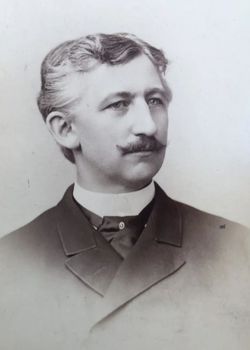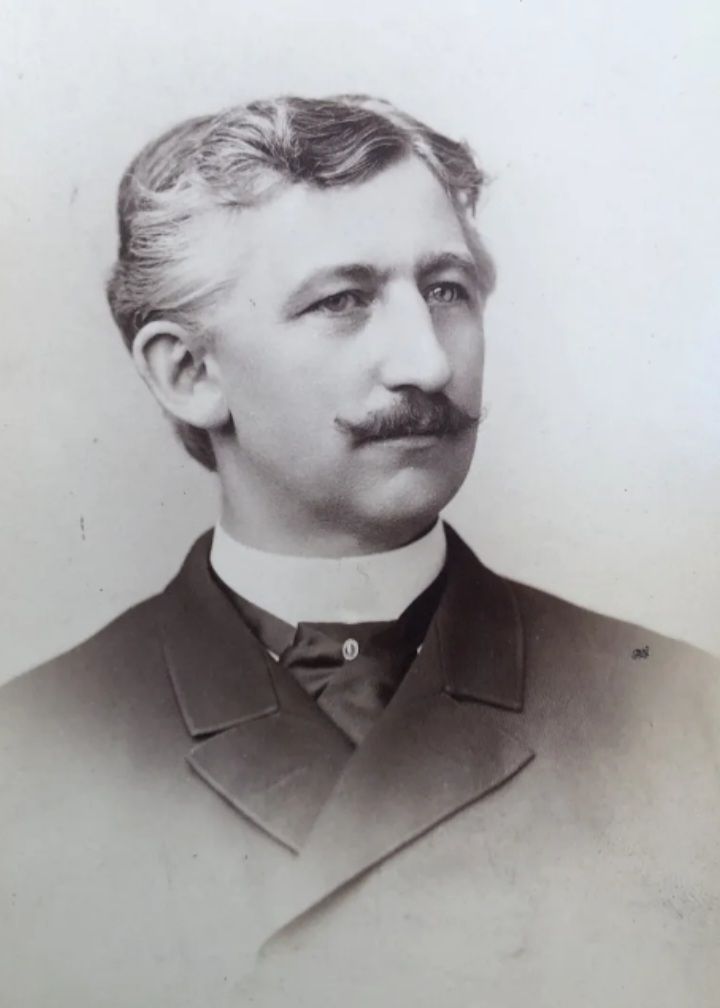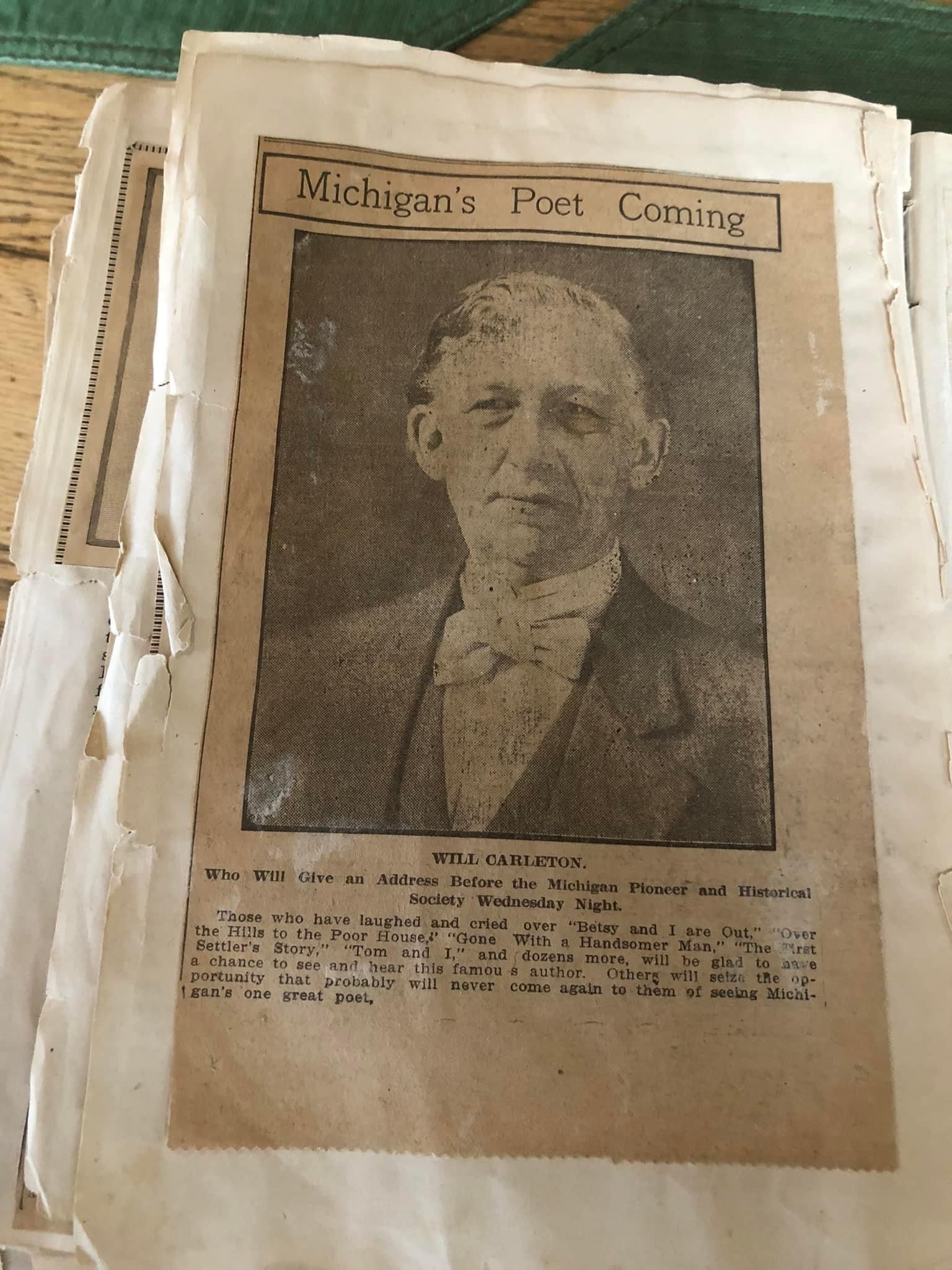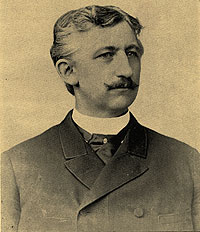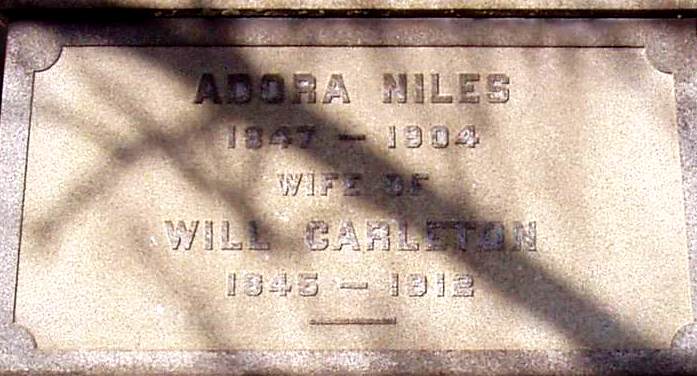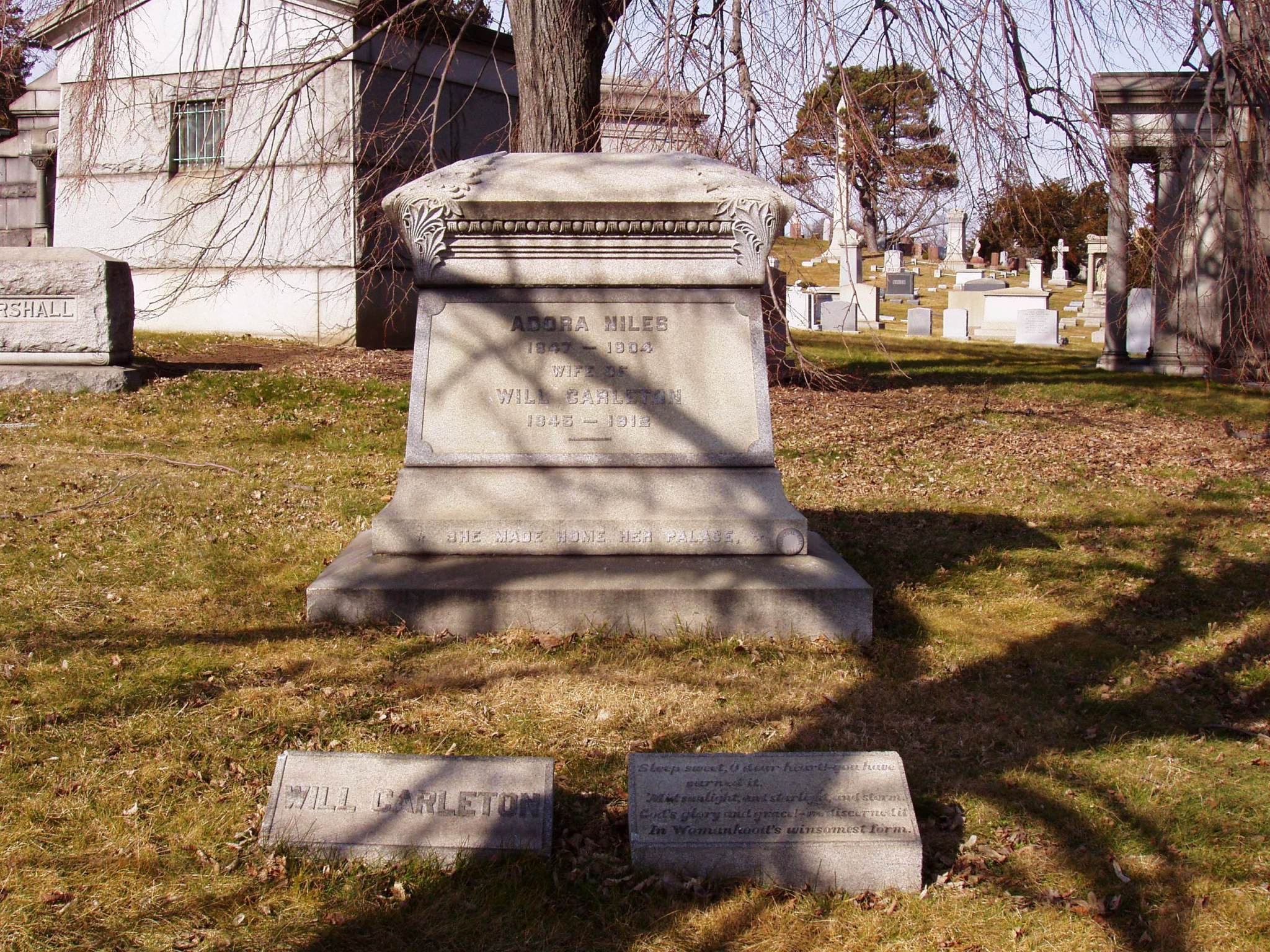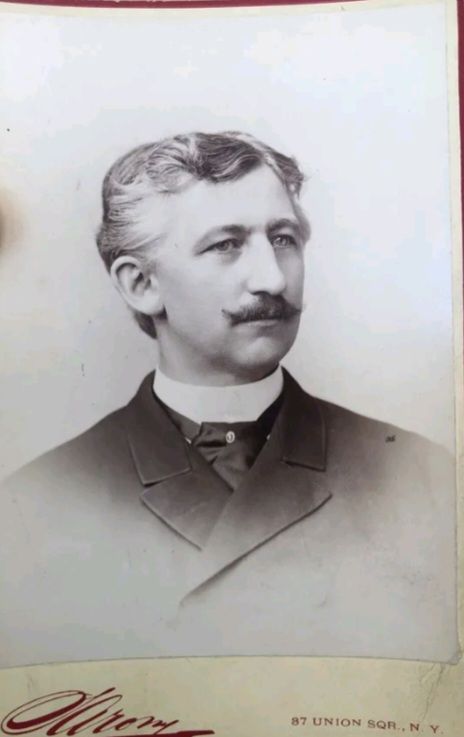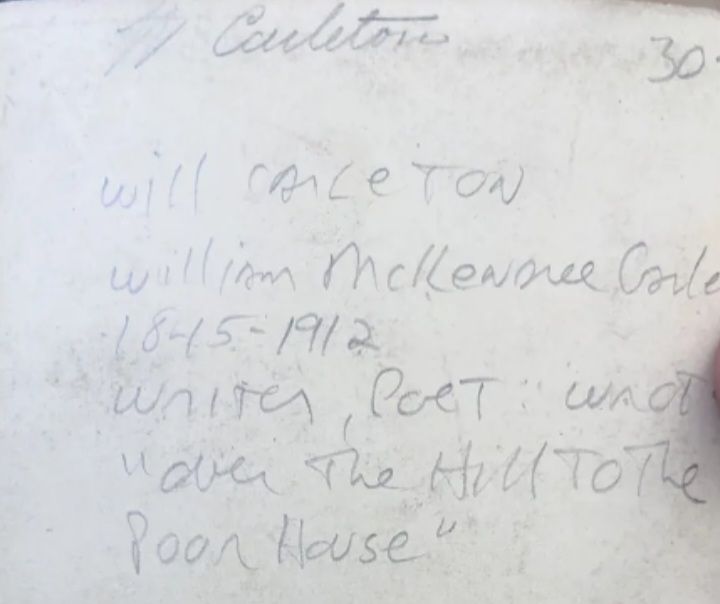William McKendree Carleton (21 October 1845 – 18 December 1912) was an American poet. Carleton's poems were most often about his rural life.[1]
Born in rural Lenawee County, Hudson, Michigan, Carleton was the fifth child of John Hancock and Celeste (Smith) Carleton. [2] In 1869, he graduated from Hillsdale College and delivered on that occasion the poem, Rifts in the Cloud.[3]
After graduating from college in 1869, Carleton first worked as a newspaper journalist in Hillsdale. He had been in the habit of writing poetry as a youngster. His first significant work published was Betsy and I Are Out, a poignant tale of a divorce which was first published in the Toledo Blade, but then reprinted by Harper's Weekly. Betsy and I Are Out was written in 1871 when Carleton was only twenty-five and employed as editor of the Detroit Weekly Tribune.[3] This poem was soon followed in 1872 by Over the Hill to the Poor House developing the plight of the aged and those with indifferent families. This piece captured national attention and catapulted Carleton into literary prominence —a position he held the rest of his life as he continued to write and to lecture from coast to coast". [1]
In 1878, Carleton moved to Boston, where he married Anne Goodell, and they moved to New York City in 1882. **NOTE:[Carleton's wife's name was actually Adora Lydia (Niles) Goodell. She was the widow of Rev. Sabin Tillotson Goodell. 1900 census indicates they married in 1898].** Carleton remained active in his college fraternity and served as the New York City Delta Tau Delta alumni chapter's president.[4] In 1907, he returned to Hudson as a renowned poet. Carleton's quotes are also well known throughout America.[5] [6] With the Public Act 51 of 1919, the Michigan legislature passed into law making it a duty upon teachers to teach at least one of his poems to children in school, and October 21st was officially named as Will Carleton Day in Michigan..[7] [2] Furthermore, a school in Hillsdale has been named after him, Will Carleton Academy. [8] On top of that, a section of the M-99 in Hillsdale is dubbed Will Carleton Road. In addition, the village of Carleton in Monroe County, Michigan is named after Will Carleton, with the road on Carleton's northern border that separates Monroe and Wayne counties being Will Carleton Road. ................
[from wvy (#46555353)]
William McKendree Carleton (21 October 1845 – 18 December 1912) was an American poet. Carleton's poems were most often about his rural life.[1]
Born in rural Lenawee County, Hudson, Michigan, Carleton was the fifth child of John Hancock and Celeste (Smith) Carleton. [2] In 1869, he graduated from Hillsdale College and delivered on that occasion the poem, Rifts in the Cloud.[3]
After graduating from college in 1869, Carleton first worked as a newspaper journalist in Hillsdale. He had been in the habit of writing poetry as a youngster. His first significant work published was Betsy and I Are Out, a poignant tale of a divorce which was first published in the Toledo Blade, but then reprinted by Harper's Weekly. Betsy and I Are Out was written in 1871 when Carleton was only twenty-five and employed as editor of the Detroit Weekly Tribune.[3] This poem was soon followed in 1872 by Over the Hill to the Poor House developing the plight of the aged and those with indifferent families. This piece captured national attention and catapulted Carleton into literary prominence —a position he held the rest of his life as he continued to write and to lecture from coast to coast". [1]
In 1878, Carleton moved to Boston, where he married Anne Goodell, and they moved to New York City in 1882. **NOTE:[Carleton's wife's name was actually Adora Lydia (Niles) Goodell. She was the widow of Rev. Sabin Tillotson Goodell. 1900 census indicates they married in 1898].** Carleton remained active in his college fraternity and served as the New York City Delta Tau Delta alumni chapter's president.[4] In 1907, he returned to Hudson as a renowned poet. Carleton's quotes are also well known throughout America.[5] [6] With the Public Act 51 of 1919, the Michigan legislature passed into law making it a duty upon teachers to teach at least one of his poems to children in school, and October 21st was officially named as Will Carleton Day in Michigan..[7] [2] Furthermore, a school in Hillsdale has been named after him, Will Carleton Academy. [8] On top of that, a section of the M-99 in Hillsdale is dubbed Will Carleton Road. In addition, the village of Carleton in Monroe County, Michigan is named after Will Carleton, with the road on Carleton's northern border that separates Monroe and Wayne counties being Will Carleton Road. ................
[from wvy (#46555353)]
Family Members
Sponsored by Ancestry
Advertisement
Advertisement
